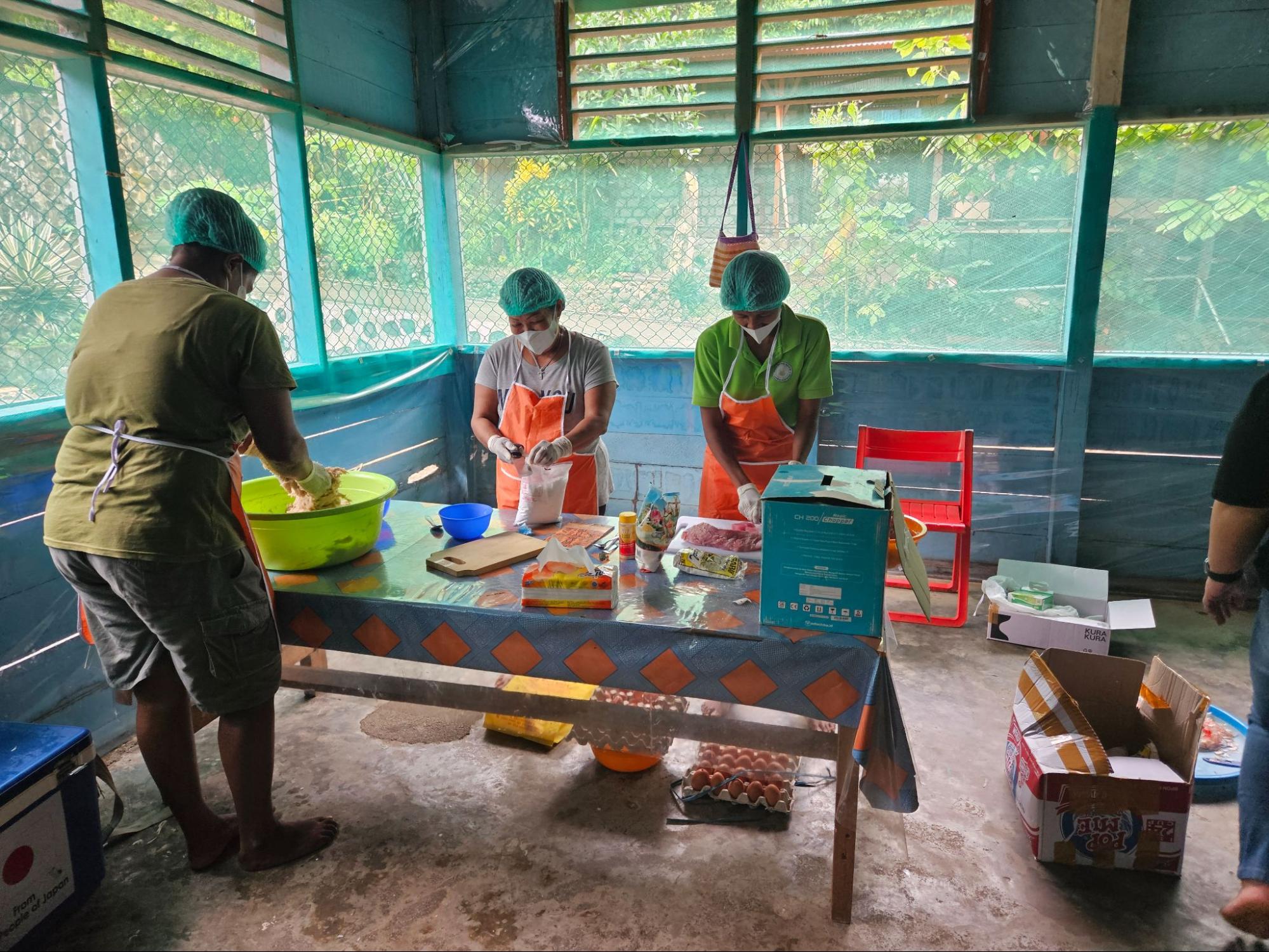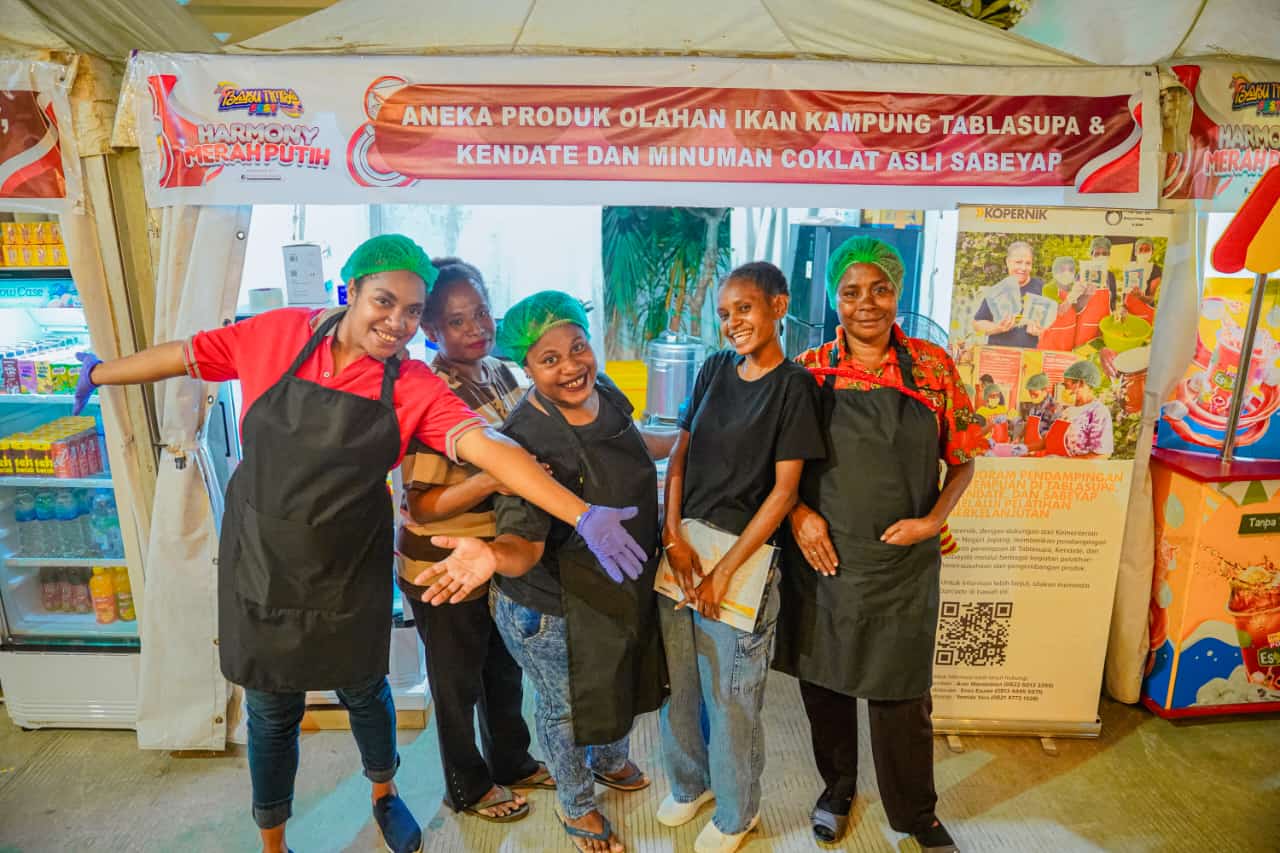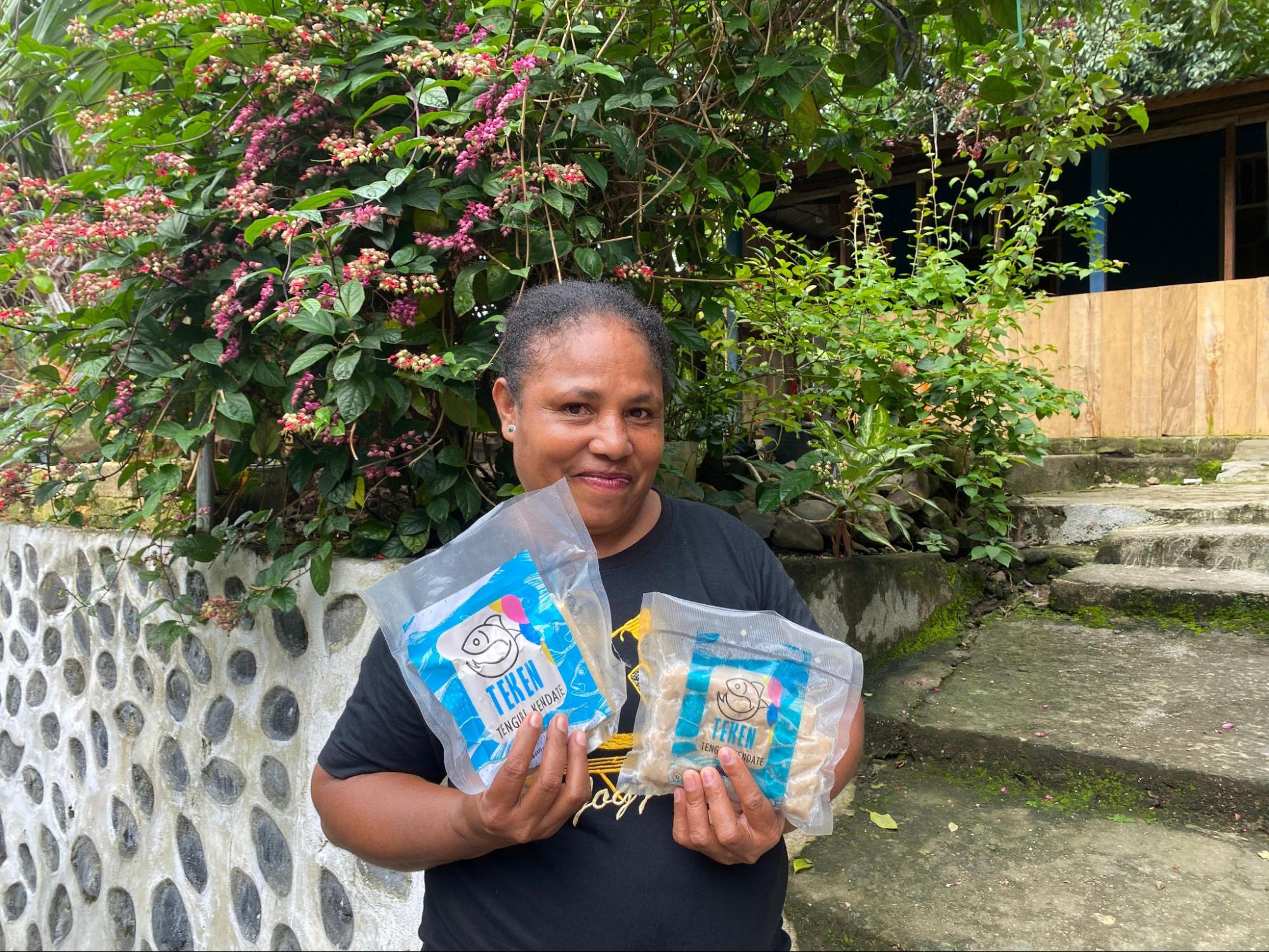In the heart of vibrant Papua, women from the Kendate, Tablasupa, and Sabeyap villages have taken bold strides towards economic empowerment. Through intensive workshops held last year, they have gained skills in product development, learning not only the art of product development, but also implementing good manufacturing practices. They have become adept at effective packaging and marketing techniques, which are crucial for reaching broader markets. Now, in the third year of this initiative, we are focusing on helping the women access markets and manage their businesses. Their enthusiasm and dedication have given rise to small production groups, each committed to honing their craft and uplifting their community's economic status.
 Women in Kendate producing fish balls.
Women in Kendate producing fish balls.
The Third Year Unfolds
As Kopernik enters the third year of supporting the livelihoods of smallholder farmers and fishers in Papua, our focus shifts from enhancing production skills to equipping the women with the tools needed for market access and business self-management. Putting their training into practice, they have been experimenting with recipes to create the best possible products. These products, ranging from fish-based items to cacao-derived treats, not only provide valuable nutritional benefits, but also serve as a celebration of their rich cultural heritage and the natural blessings of their land and sea.
Their journey recently took an exciting turn at the Baku Timba Festival in Jayapura, a lively cultural event that brought together communities to celebrate local ingenuity. At this festival, 13 production groups from three villages proudly introduced their fish-based products, such as nuggets, sausages, fish floss, smoked fish and fish balls. Alongside these, they displayed cacao creations like chocolate spread and beverages. It was more than just a festival; it was a crucial platform for the women to present their hard work, gain market exposure, and engage with potential customers, signalling a promising future for their businesses.
Mama Hermelina, a fish nugget producer from Tablasupa, expressed her joy about participating in the festival. “I’m so happy to join this festival. After much training, we can finally sell our products, and when people enjoy them, it makes me proud.”
Her sentiments were echoed by Echa from Sabeyap village, who has been instrumental in managing financial transactions during the festival. “It’s special to see our cacao products at the festival. I’m proud to sell what we’ve made. I’ve also learned the importance of data recording, helping with sales and managing finances. This experience has been great for my learning.”
 The women’s group managing the festival booth.
The women’s group managing the festival booth.
Crafting the Future
The goal for this year is to prepare the communities to forge a path toward self-reliance. The women are enhancing their marketing skills, learning to craft compelling messages that highlight the unique qualities of their products. They are being trained to develop a strong market presence that can attract a steady customer base. In addition to marketing, the women are also refining their production processes with the help of dedicated trainers who ensure the consistency and quality of their products. Financial management is another key focus, as they gain skills in budgeting, tracking expenses, and planning. This knowledge will enable them to manage their finances independently and sustain their businesses long after the program ends.
 A SIHUB (Smallholder Innovation Hub) staff member with fish sausages made by women micro-entrepreneurs.
A SIHUB (Smallholder Innovation Hub) staff member with fish sausages made by women micro-entrepreneurs.
As this program nears its conclusion, our hope is that the communities will not only thrive economically, but also fully realise their potential. This project is about more than just financial gain; it’s about creating a lasting legacy of empowerment, resilience, and sustainable growth. Here’s to the remarkable women of Jayapura—may this chapter mark the beginning of many more successes and endless opportunities.
This project is made possible through support from the Ministry of Foreign Affairs (MOFA) in Japan.


